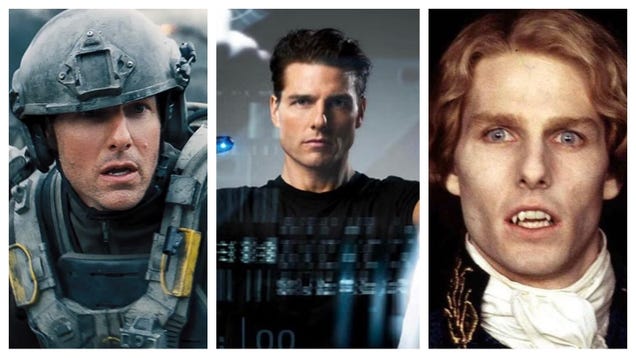Jeg tenker ikke da på alle som halter rundt i Star Wars/Trek-kostymer, eller roper exterminate i tide og (oftere) utide, men forfattere som utnytter science fiction til å si noe vettugt om hva slags virkelighet vi lever i.
Vi finner interessante betraktninger også om dette i en lengre artikkel av SF-forfatteren Robert R.Chase i First Things.
It all started with a letter, dated December 1943, that began, “I wish to disagree, somewhat violently, with you over a passage on page 43 of Perelandra.” The writer was Arthur C. Clarke, later to be renowned as the author of the science-fiction classic 2001: A Space Odyssey, and the recipient was C.S. Lewis, the premier Christian apologist of the time.
Clarke felt that Lewis’ description of Professor Weston, the villain of Perelandra, cast an unfair light on science-fiction enthusiasts and space-travel advocates. “I can assure you from personal experiences that most devotees of science fiction are biased far more towards pacifism than militarism,” he wrote. “I believe that astronautics more than any other single development will accelerate the coming of age of our species. National rivalries . . . will finally appear in their proper perspective when they can be seen against the background of the stars.”
In a later age of intercontinental missiles and spy satellites, it is hard not to smile at the naivete of these sentiments. Even in the 1940s, within a year of Clarke’s letter, England and Antwerp were bombarded by V-2 missiles, the creations of fellow space enthusiasts in Germany. Although Clarke tried to distance himself from the “stories of interplanetary imperialism and destruction” that are “the stock in trade of the hack writer,” he did not seem to grasp the real root of Lewis’ concern. The problem was not merely the extension of warfare and its exploitation on an interplanetary scale. It was also the science-fiction claim that mankind itself—fallen and corrupt, as Lewis knew—should be imagined as extending across the cosmos.This was neither the first nor the last time that religion and science—or, more properly, scientism, the mystical and literary celebration of science—have squared off, with science fiction as the battleground. Again and again, in the history of the genre of science fiction, religious themes have been examined, debated, proposed, and pilloried. On one level, this seems counterintuitive: Surely science fiction should concern itself with science. Yet over and over again, we find science-fiction stories dealing with themes implicitly or explicitly religious.
Etter denne nedtellingen tar artikkelen av for alvor.
Atskillige avsnitt og avstikkere senere ender det med en ikke uventet observasjon til First Things å være:
Science fiction can present two contradictory views of ultimate reality. One is that of, say, Steven Weinberg, the physicist who writes that “the more the universe seems comprehensible, the more it also seems pointless.” The bleakness of this view is only partially mitigated by the wonders revealed by research and the possibility that man eventually will be able to raise himself to divine status.
The other is that reason reveals an underlying order so profound that even a robot can see that it is the handiwork of God.
Kort sagt er science fiction viktigere i påsken enn krim.






















Ingen kommentarer :
Legg inn en kommentar